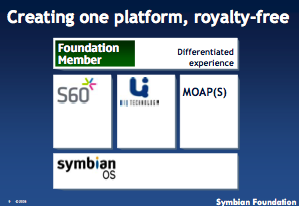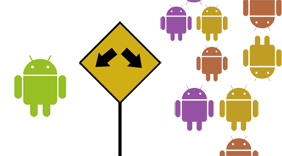 This comes as no shock, and it just might save Motorola’s cell phone hide.
This comes as no shock, and it just might save Motorola’s cell phone hide.
According to BetaNews, Motorola has confirmed it is working on a new phone that utilizes Google’s mobile operating system Android. It’s no surprise because Motorola was a founding member of the Google-led Open Handset Alliance.
“We’re excited about the innovation possibilities on Android, and (we) look forward to delivering great products in partnership with Google and the Open Handset Alliance (OHA),” Motorola said in a statement.
Since the announcement of Android at the end of last year, HTC, Motorola, Samsung, and LG Electronics all have been rumored to be interested in manufacturing an Android handset. HTC is the first to deliver an Android phone, the G1, which will be available later this month and sold by T-Mobile in the U.S.
Other handset manufacturers have laid low, however, keeping their Android plans quiet. For its part, Motorola has been working diligently to solve its ailing cell phone business. Earlier this year it decided to spin off its troubled cell phone division from the rest of the company.
Continue reading »


 In light of the move towards cloud computing, the Web browser is fast becoming the most important application on any mobile platform, whether it be the Nokia-led Symbian OS, Apple’s iPhone, Windows Mobile, Blackberry, LiMo or any other. An argument I made recently
In light of the move towards cloud computing, the Web browser is fast becoming the most important application on any mobile platform, whether it be the Nokia-led Symbian OS, Apple’s iPhone, Windows Mobile, Blackberry, LiMo or any other. An argument I made recently  Talking down Google’s Android mobile operating system has become pretty easy of late: An incomplete and buggy SDK, favoritism
Talking down Google’s Android mobile operating system has become pretty easy of late: An incomplete and buggy SDK, favoritism  “One can create an application that uses Google Maps, get the current GPS-position or read out the accelerometer within 10 lines”. The integration with Google Maps is especially tight, he says, something that doesn’t currently exist on other mobile platforms. And Gramlich should know. His first Android effort is a free navigation app called
“One can create an application that uses Google Maps, get the current GPS-position or read out the accelerometer within 10 lines”. The integration with Google Maps is especially tight, he says, something that doesn’t currently exist on other mobile platforms. And Gramlich should know. His first Android effort is a free navigation app called  The boldest moves are made from a position of strength, not when the chips are down and you’ve very little to lose. Nokia’s decision,
The boldest moves are made from a position of strength, not when the chips are down and you’ve very little to lose. Nokia’s decision, 
 “Smartphones have historically been oriented towards business users. The iPhone is more of an entertainment platform”, notes John Jersin, CEO of mobile startup
“Smartphones have historically been oriented towards business users. The iPhone is more of an entertainment platform”, notes John Jersin, CEO of mobile startup  It’s hard not to be impressed by the latest
It’s hard not to be impressed by the latest  Google demonstrated its Android operating system again, this time at the I/O conference in San Francisco. And, well, it’s still full of promise, just in case you were wondering.
Google demonstrated its Android operating system again, this time at the I/O conference in San Francisco. And, well, it’s still full of promise, just in case you were wondering.